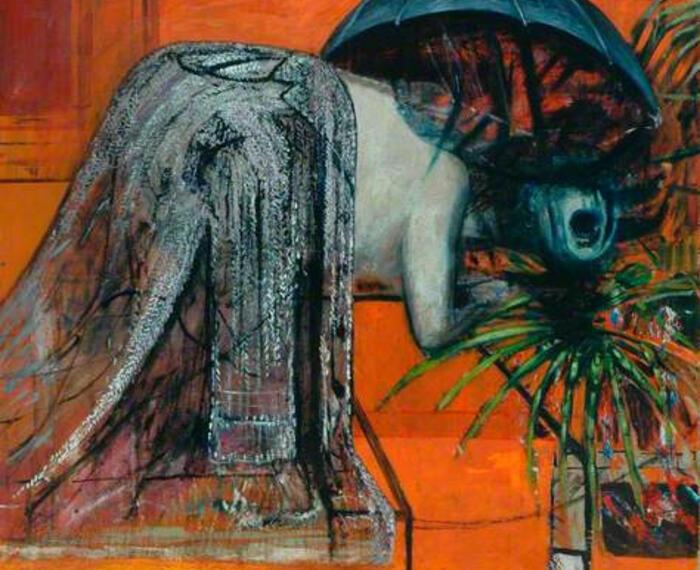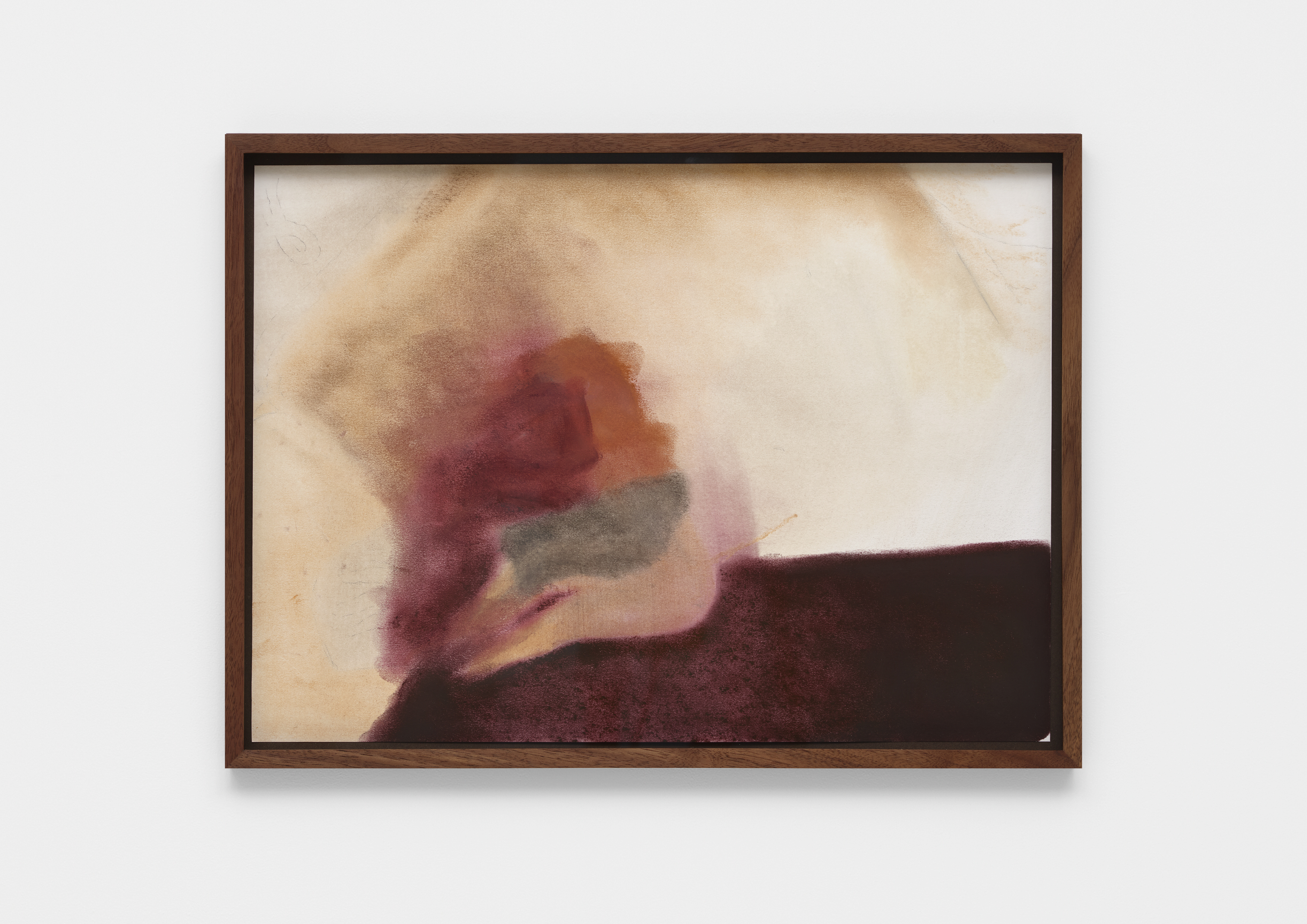


Courtesy the artist & Carlos/Ishikawa, London. Photographer Eva Herzog.
Carlos∕Ishikawa, Unit 4, 88 Mile End Road, London, E1 4UN
21 September – 28 October 2023
In order to view the video that is the centrepiece of Josiane M H Pozi’s show at Carlos/Ishikawa gallery, you have to climb up a couple of steps on a platform and peer over the edge of a structure that feels like looking into a well. The work plays, horizontally, under a sheet of glass that reflects the viewer back on themselves. The effect is to absolutely corral the attention, and produces an intense, if slightly voyeuristic experience. Around the walls of the gallery are half a dozen mesmerising pastels, a strand of the artist’s work that is shown here for the very first time.
Pozi’s career is taking off very rapidly: born in 1998, she graduated only two years ago from her BA at Goldsmiths. By that time, Pozi had already had major exhibitions in New York and Berlin, and she has been included in international group shows since 2018, including contributing twice to the Serpentine Park Nights programme (2019 and 2022). The pandemic and subsequent financial crises have been no impediment to an artist who comes from a generation that is undeniably more entrepreneurial, more independent, more confidently digital than any before. In an interview with her friend, the composer Klein, in iD Vice magazine, Pozi is dismissive of the commercialism of the (especially London) art scene, and the way it fosters a kind of small-c conservatism:
“I don’t feel like the spectator is being challenged at the moment. People rely on tropes just because they want to be successful. Capitalism is driving people to abandon what they want to do in the hopes of maintaining a certain amount of I don’t know, social capital, physical capital (…) I feel like in the last year, especially during the pandemic, I realised that success for me is just doing my ideas. It’s like the hardest thing to do, sitting down and allowing yourself to do it.”
In a practice that includes performance and music videos, it is her moving image work that seems central and which does indeed speak with a unique voice. While she has used iPhone footage in the past, Through my fault was shot using the low-res cameras embedded in spy glasses. The narrative shifts between two scenarios: conversations taking place at a crowded house party, and a whispered conversation between a couple at the cinema. Grainy, out of focus and intensely colourful, shot from apparently haphazard angles, the house party visuals are relatable as the kind of thing you might accidentally take on your phone. The protagonists are present only as voices in awkward, stilted conversation. The couple at the cinema are shot from behind, from very close up, the low lighting of the cinema renders the colours almost completely desaturated. It’s impossible to tell what they are watching, and all focus is on the psychodrama of their tense, fragmented exchanges. Both parts of the work imply a kind of surveillance, access to something private and to a degree of emotional distress in negotiating social situations. In the house party segments, the same anecdote is related twice – first apparently authentically as first-person testimony, the second time appropriated in order to generate party conversation. In both instances, having shared a fairly banal, if slightly dark anecdote about the origin of the term “falling off the wagon”, and a messy story about trying to help someone who was injured in the street, the characters part abruptly without ever seeming to make any real connection:
Pause. Partygoers chat loudly.
You S/o
1 So
You I guess, on that note I’m actually gonna go grab a drink but urm /but it was really good seeing you
1 Okay okay, I got you
You Urm I’ll catch you
1 When I catch you
What Pozi captures so acutely here is the state of alienation that sits behind these encounters; the seeming impossibility of making emotional connections and the echoing loneliness that entraps her characters. In earlier work the artist has explored the sometimes painful dynamics of her own family life – unflinchingly revealing the relationship with her late father, for example in Pingey, 2020. Though they do not necessarily relate to one another, some of the pastels in the current show occupy the same domestic spaces inhabited in that film, picking up the yellow cast of the strip lighting, the dark brown leather sofa on which she and her father sit, silhouettes of their heads. All the pastels evoke claustrophobic interiors that seem to crackle with unspoken anxieties, rendered in close tones of greys and blues and browns and a dreamlike soft focus. What is intriguing here is the conjunction of these very beautiful works on paper, that would look relatively conventional if it were not for the sophisticated and, yes, challenging, video they sit alongside. I for one will certainly be looking out for the next chance to see more.
Caroline Douglas
Director
Carlos∕Ishikawa
Unit 4, 88 Mile End Road, London, E1 4UN
21 September – 28 October 2023
Opening Times: Wednesday - Saturday from 12pm to 6pm
Exhibition open until 28 October 2023